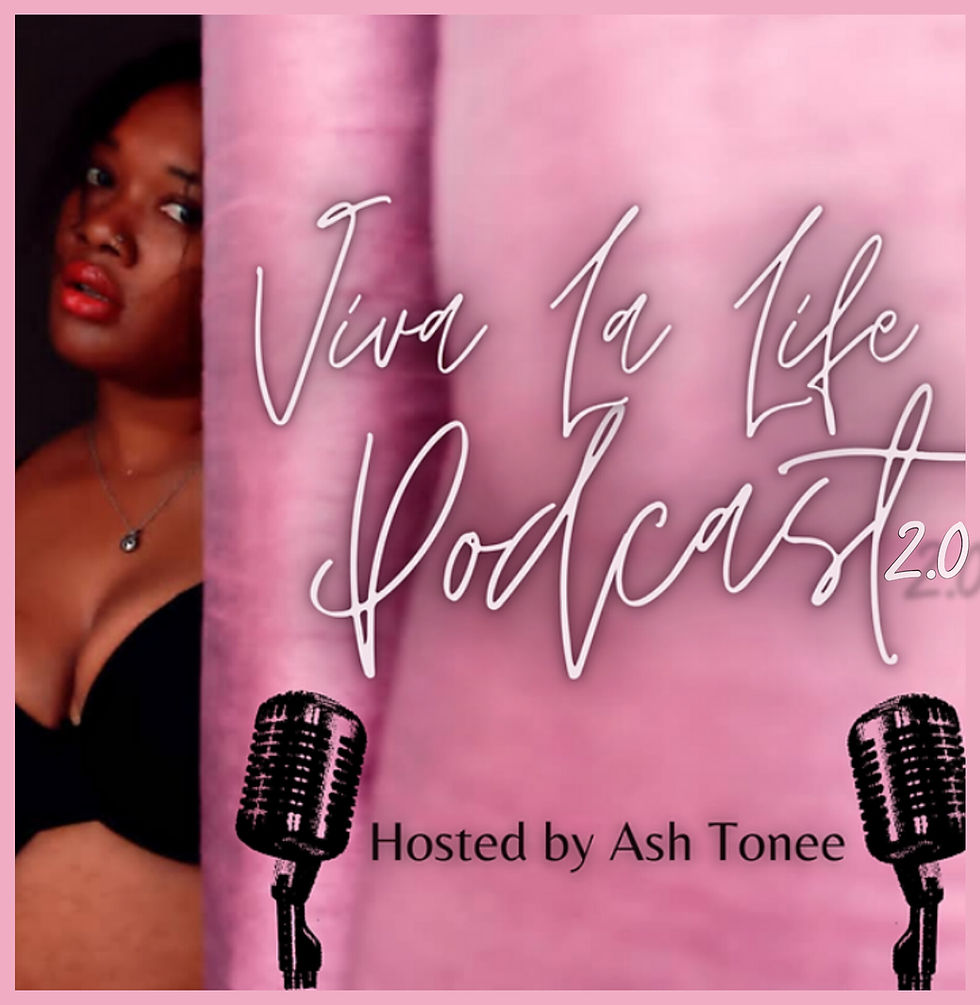"America's on Punishment": A Deep Dive into Drake, Fan Culture, and Accountability
- Ash Tonee
- Jul 15, 2025
- 4 min read
Howdy Viva Fam,
Okay, let's talk about something that's been bubbling under the surface for a while now, especially after recent events in the music world. We're diving into the whole "America's on punishment" narrative surrounding Drake, and honestly, it brings up some seriously spot-on points about modern celebrity, fan culture, and morality.
Entitlement to Opinion and Morality: You Get to Choose!
The idea that fans owe unconditional support to an artist? That's a relatively new thing, cranked up to eleven by social media's "stan culture." But let's get real: you're the consumer. You have every right to decide where your streams, ticket sales, and attention go.
When there have been whispers and allegations about an artist for years, and then a high-profile rap beef puts them under a microscope, it's completely natural to re-evaluate. Withdrawing your support because of a moral stance isn't being a "hater" or "disloyal"—it's making a conscious choice. The narrative that you're a "traitor" for doing so? That's designed to shut down critical thinking. Don't fall for it.
The False Choice Between Artists: Music Isn't a Sport
This is another brilliant point. Rap beefs often try to force you to pick a side, like it's a championship game. But music isn't a sport! You can absolutely appreciate Kendrick Lamar's intricate lyrics and social commentary while also enjoying Drake's catchy hooks.
The pressure to "pick a team" turns art into a shallow competition. Most mature music fans have diverse tastes, and forcing a black-and-white loyalty test just isn't necessary.
Drake's "Acting Like He's God" Attitude: A Masterclass in Control
That feeling that Drake is demanding 100% loyalty? It's a direct reaction to his carefully constructed brand. This whole "punishment" tour narrative is a calculated power play designed to:
Control the Narrative: By framing his absence from the U.S. as "punishment," he redefines a potential business decision (like avoiding a market where his popularity dipped) as an act of power. It's basically saying, "You don't get me because you don't deserve me."
Generate Hype: This creates a sense of scarcity and desperation. Fans are practically begging for him to return, which only reinforces his image as being at the absolute peak of the music world.
Enforce Loyalty: It sends a clear message: loyalty gets rewarded with a tour, dissent gets punished with absence.
So, when you feel like he's "acting like he's god," you're not wrong. You're pinpointing the persona of supreme confidence and control he's projecting. Annoyance and anger are natural responses to that kind of perceived arrogance, especially when you have legitimate moral and artistic reasons for your opinions.
The Narcissistic Approach: Deflection and Avoiding Accountability
This strategy is pure deflection. An artist truly engaging with accountability would either ignore the beef and tour normally, or address it head-on. Instead, he's flipped the script entirely.
The Original Issue: Drake's image took a hit in the U.S. after the Kendrick beef, bringing character questions to the forefront.
The Deflection: Now, the conversation isn't about that. It's about whether America is "sorry" enough to "deserve" a concert.
He successfully shifted the focus from his actions or the quality of his response in the beef to the audience's loyalty. This is straight out of the DARVO (Deny, Attack, Reverse Victim and Offender) playbook:
Deny: Deny the impact of any perceived loss. Post vacation photos, show off massive international crowds. Never admit weakness.
Attack: The "attack" isn't direct insults; it's a strategic withdrawal. Punishing the U.S. market is a subtle jab at the American public who largely declared him the loser.
Reverse Victim and Offender: This is the genius move. Drake, arguably the "offender" in the public relations battle, has recast himself as the victim of a disloyal American audience. The audience, in turn, is made to feel like the offender who must now apologize to be rewarded.
Instead of healing his image through vulnerability, he's built a fortress around his ego, projecting an aura of such power that criticism seems irrelevant. It's a power play designed to make you question your judgment, rather than him having to be accountable.
A Masterful, If Cynical, Marketing Strategy
From a purely analytical standpoint, Drake's team is executing a brilliant, albeit cynical, marketing campaign. They've:
Controlled the Narrative: Successfully steered the conversation away from his perceived "loss" to his commercial power and audience demand.
Generated Demand: Created scarcity and leveraged social proof from overseas concerts to amplify desire in his biggest market. People always want what they can't have.
Engaged with Low Risk: This strategy requires minimal direct confrontation. His fans and the media do all the narrative work for him, keeping him culturally relevant for free.
This also perfectly reflects modern fan culture: it thrives on polarization and parasocial relationships, where fans feel a collective responsibility for an artist's emotional state. The "America on punishment" narrative is easily shareable, turning a complex issue into a gamified meme.
It's also completely consistent with the "Drake" brand—a constant dance between the vulnerable "lover boy" and the untouchable "Champagne Papi." After a moment of perceived vulnerability, he's course-correcting hard back to the dominant emperor persona.
Is it Just "Image Surgery"?
This whole approach feels a bit like "plastic surgery for abs." It's a quick fix for public perception, rather than investing in deeper, more sustained efforts. It's about altering appearance to achieve a desired aesthetic, bypassing the longer, more arduous process of "workouts" (consistent artistic output, genuine community engagement).
The core here is perception versus reality. These "fixes" create a desired perception that might not fully align with a deeper, more organic reality. If there's no substance to back it up, the "fix" might only provide temporary relief.
Ultimately, this approach could be seen as shortsighted. It stems from a clash between a nuanced, morally-aware perspective and a celebrity-fan dynamic that increasingly demands simplistic, unconditional loyalty. It's fascinating—and frustrating—to watch it unfold. Only time will tell if this strategy truly pays off in the long run.
When it comes to celebrity feuds, do you feel the pressure to pick sides, or can you appreciate artists across the spectrum? And specifically with this 'punishment' strategy, do you think it's a brilliant move, or does it rub you the wrong way? Share your thoughts below!







HOW ARE YOU DOING TODAY, OVER THERE?
TRUST YOU'RE GREAT RIGHT 👍
I'm Muhammad Kamaar, a Wix Partner. Your website was recently recommended to my team for support. After reviewing your site, I identified areas to improve performance, visibility, and user experience. I'd like to share tailored suggestions to address technical SEO issues, crawl errors, and accessibility gaps. By implementing these optimizations, we can increase traffic and drive meaningful actions. If you're interested, please visit my Fiverr profile (https://www.fiverr.com/s/Ldq9mGL) to explore how we can collaborate and elevate your website's uniqueness and SEO.
Best regards,
MUHAMMAD KAMAAR / WIXPARTNER / DIGITAL EXCELLENCE VISIONARY